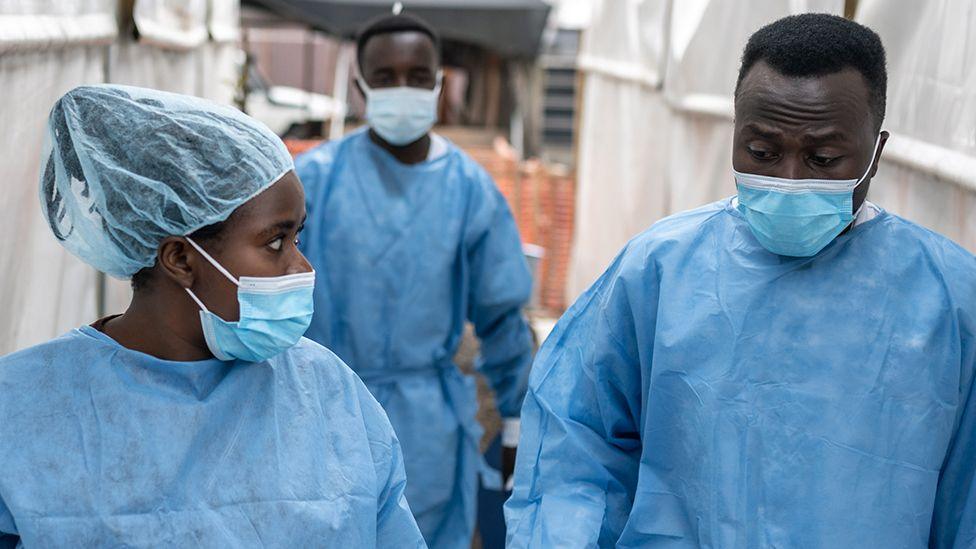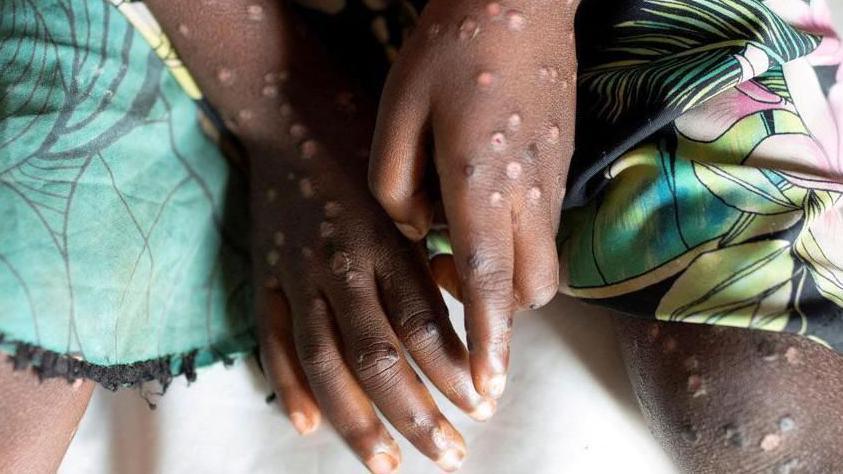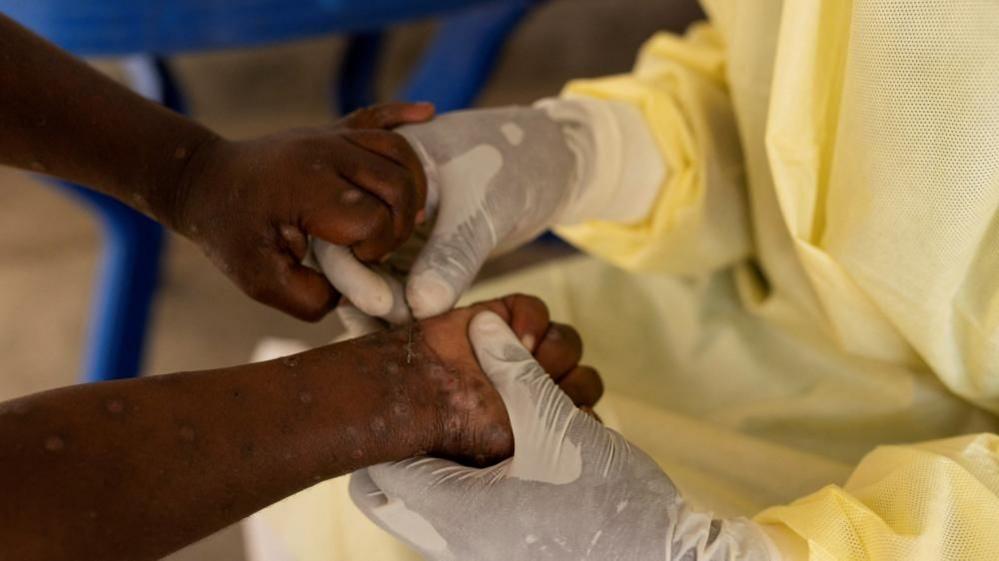Mpox advice issued but Isle of Man risk remains 'low'

No cases of mpox have been reported on the Isle of Man
- Published
People on the Isle of Man have been asked to remain vigilant about the symptoms of mpox after a case of a more dangerous strain of the disease was confirmed outside of Africa.
The island's public health directorate said it was "planning and preparing" to deal with any cases as a precautionary measure, but the risk to residents remained "low".
A case of the new variant, Clade Ib, was confirmed in Sweden last week and linked to a growing outbreak in Africa.
The World Health Organization has declared the mpox outbreaks in parts of Africa a public health emergency of international concern.
At least 450 people died during an initial outbreak in the Democratic Republic of Congo and the disease has since spread to areas of Central and East Africa.
Symptoms
Mpox, which was previously known as monkeypox, is transmitted through close contact, such as sex, skin-to-skin contact and talking or breathing close to another person.
It causes lesions on the body such as the face or genital area, fever, muscle aches, chills and exhaustion, headaches swollen lymph nodes, and can be fatal, with four in 100 cases leading to death.
A public health spokesman said those who may be at higher risk include anyone who changes sexual partners regularly, who has regular close contact with others or who has recently travelled to any of the affected African countries.
Anyone who develops symptoms should contact their GP or a sexual health clinic immediately and avoid close contact with others, he added.
Watch on BBC iPlayer
Mpox: The Outbreak
- Attribution
Why not follow BBC Isle of Man on Facebook, external and X, external? You can also send story ideas to IsleofMan@bbc.co.uk, external
Related topics
- Published22 August 2024

- Published20 August 2024

- Published15 August 2024
